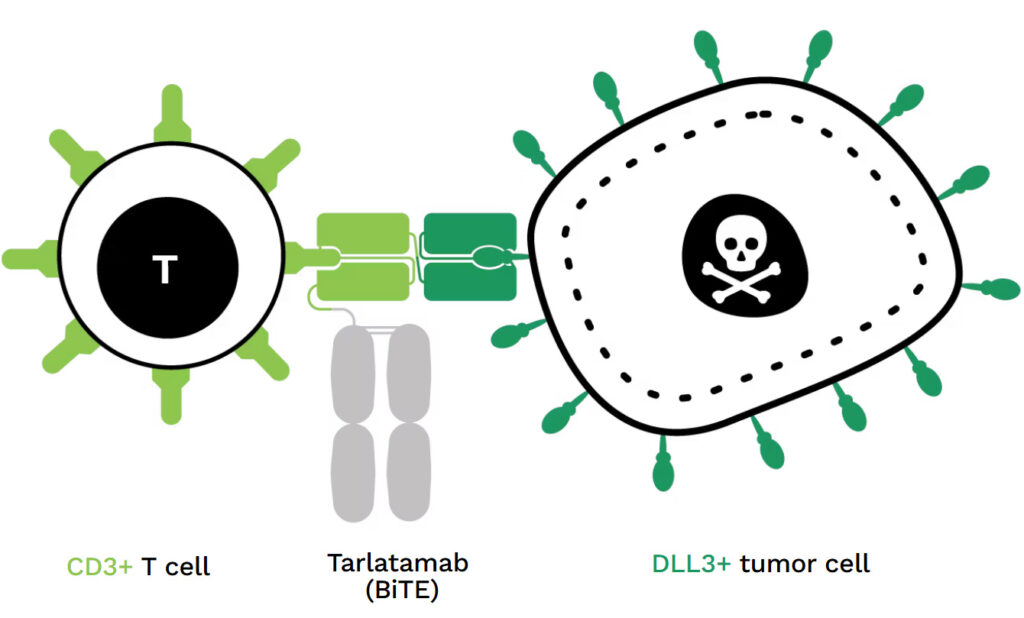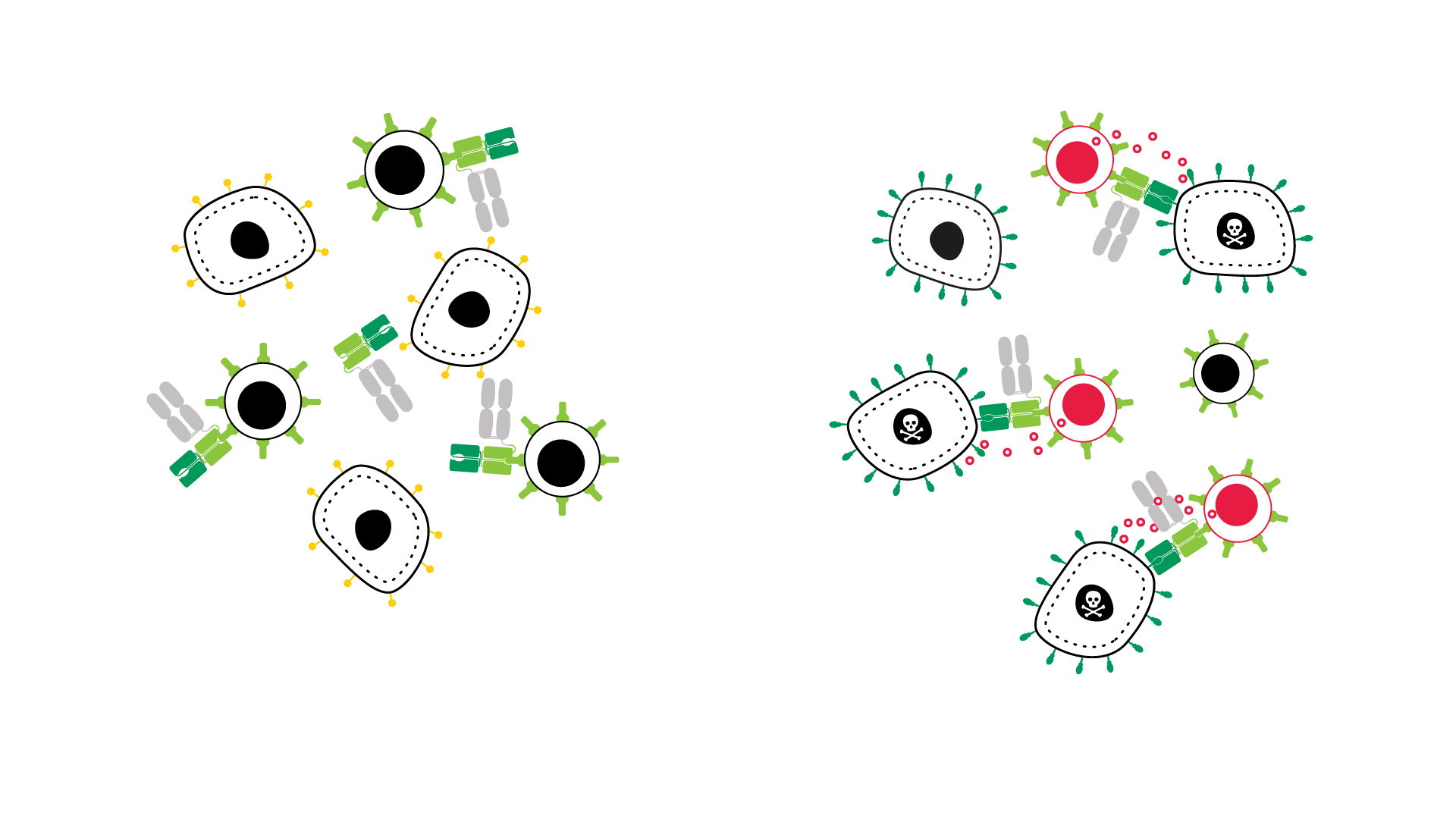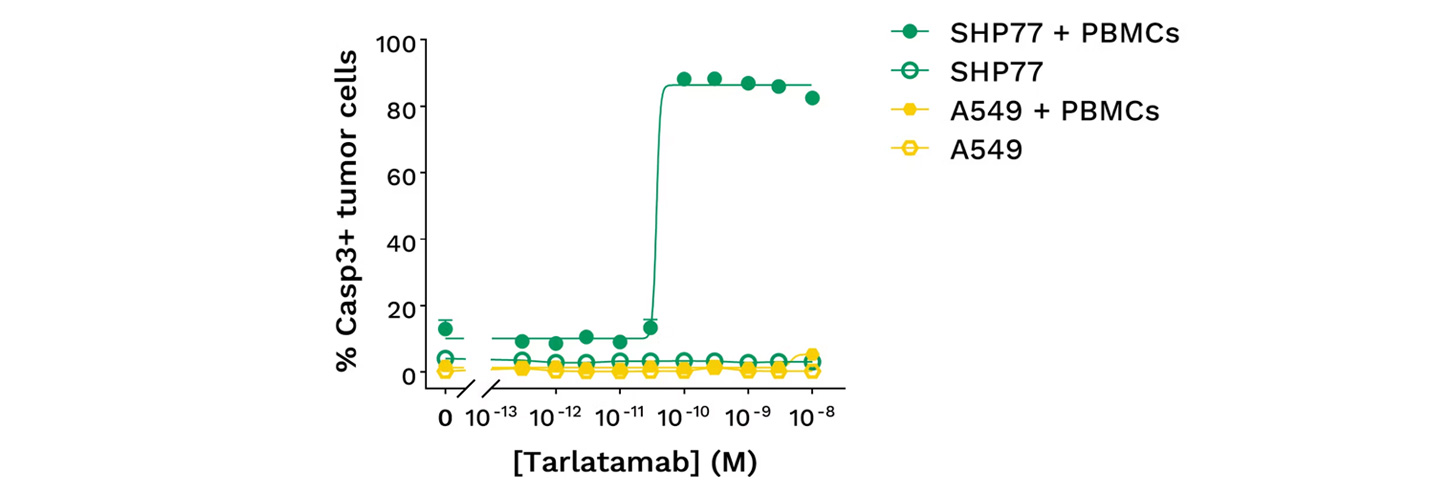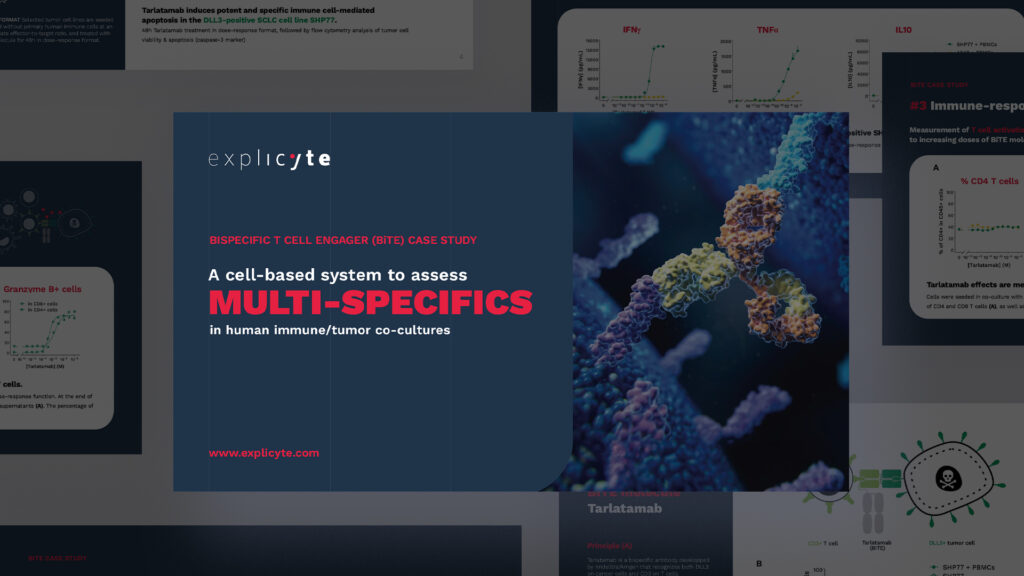The underlying questions: Do your multispecific candidates trigger immune-induced tumor cell death? What are the mechanisms underlying this immune activation-mediated response?
- Format: 96-well plate, dose-response
- Model: Tumor cell line expressing the target receptor co-cultured with primary immune cells (PBMCs or T cells)
- Readouts: Tumor cell count & apoptosis, immune cell response (immunophenotyping by flow cytometry & supernatant analysis by LEGENDPlex)
- Control: Tumor cell line not expressing the target receptor
- On request: proteomics, transcriptomics

Case study (see below) with Tarlatamab: a DLL3-targeted BiTE molecule
Assay principle
- Selection of human tumor cell line(s) expressing the target surface marker, together with control cell lines, by flow cytometry.
- Co-culture with primary immune cells
- Tumor killing assay in dose-response format (tumor cell count & tumor cell death)
- Immune response profiling:
- Immunophenotyping (intracellular & surface markers)
- Supernatant analysis (cytokines & cytotoxic effector molecules)
- Additional readouts: gene expression, proteomics

In vitro assessment of DLL3-targeted BiTE molecule Tarlatamab
Tarlatamab efficiently induces the death of DDL3+ small cell lung cancer cells (SHP77 human SCLC cell line) only in the presence of primary human immune cells.
While potent, this response is specific: no cytotoxicity is observed against DLL3-negative non-small cell lung cancer cells (A549 NSCLC cell line) when cultured with immune cells.


Why working with Explicyte?
Experts
in Immuno-Oncology
- 100+ in vitro campaigns conducted over the past 10 years
- 30+ peer-reviewed publications in key immuno-oncology journals
- A comprehensive technology platform to decipher mechanisms of action (activation markers, signaling pathways…)
Personalized
approach
- Targeted discussion based on your request to design bespoke strategy & fit-for-purpose study proposal
- A dedicated study director (PhD level) from experimental plan to final report discussion
- Custom cellular models: over 100 human cancer cell lines available, cultured with primary immune cells
Tell us about your project !

Talk to our team !
Paul Marteau, PharmD (preclinical study director), Imane Nafia, PhD (CSO), Loïc Cerf, MSc (COO), Alban Bessede, PhD (founder, CEO), Jean-Philippe Guégan, PhD (CTO)
Bispecific T cell engager (BiTE) tumor killing assay I in vitro CRO services
Explicyte developed a cell-based system to assess the efficacy and specificity of multispecific antibodies against tumor cells. To evaluate specificity, this tumor killing cell-based assay is performed with tumor cell lines expressing or not the surface target of interest. Tumor killing in-dose response format is then used to select candidates. Finally, the cell-based assay is compatible with immune response profiling, through the analysis of surface & intracellular markers, cytokines and cytotoxic effector molecules in supernatants. thus providing insights into the efficency and mechanisms of multi-specific candidates.










